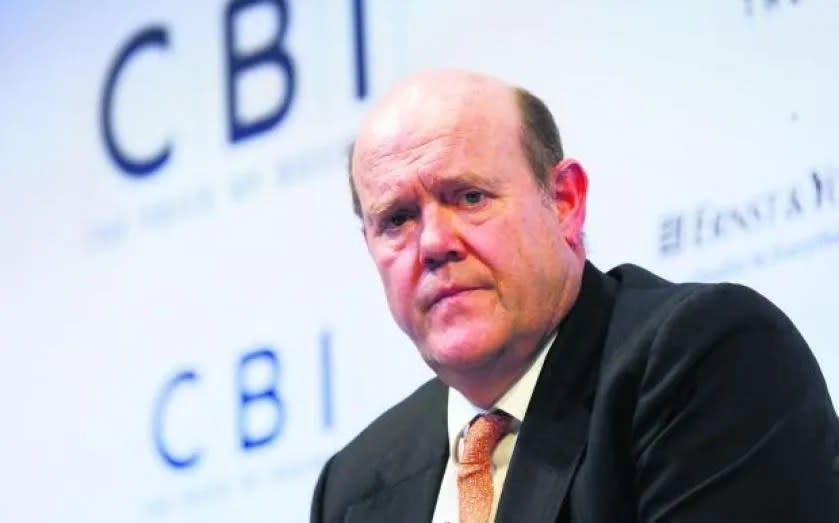Could Smith & Nephew ditch the London Stock Exchange?

Smith & Nephew is facing questions over whether it could ditch its London listing after Cevian Capital, Europe’s biggest activist investor, took a stake in the medical equipment manufacturer.
The Swedish firm disclosed a five per cent stake in Smith & Nephew on Thursday, sending its shares to the top of the FTSE 100. It is the index’s 48th-biggest stock with a market capitalisation of £8.62bn.
Cevian, which has become Smith & Nephew’s second-largest shareholder, is known for taking long-term positions in companies and calling for change.
“Cevian is likely to hold management’s feet to the fire and may look for more ambitious targets than set out under the existing improvement plan,” said Russ Mould, investment director at AJ Bell. “It could also push for a rationalisation of the company’s portfolio.”
The third-biggest shareholder in Irish building materials firm CRH, Cevian pressured the FTSE 100 company last year to ditch its primary listing on the London Stock Exchange in favour of New York – a move it completed last September.
CRH’s shares are up 30 per cent since it made the switch, making it one of the best-performing stocks in Cevian’s portfolio.
The investor is also the top shareholder in Pearson, the FTSE 100 educational publishing and services giant. Cevin, which had a nearly 13 per cent stake in the firm at the end of last year, was reported in December to have singled out Pearson as the next company in its portfolio well suited for a move to the US.
“To change the listing is an easy and effortless way to increase the value of a company,” Christer Gardell, managing partner and founder of Cevian, said at the time. “Pearson is a US company with the majority of sales and executives there. It’s only due to historical reasons it is still listed in the UK.”
Founded in Hull in 1856, Smith & Nephew’s latest annual report showed it made 54 per cent of its revenue in the US last year. The UK, meanwhile, represents just three per cent of its revenue and seven per cent of its 18,000 employees.
Nearly all of its senior team, including the chief executive, is made up of US citizens based in the US. Smith & Nephew has sought to bring US executive pay closer to American levels, granting its CEO a 30 per cent bump in May despite opposition from 43 per cent of voting shareholders.
Underscoring differing practices on both sides of the Atlantic, the firm did not also raise pay for its UK-based chief financial officer. It has partly blamed low pay for a high turnover of CEOs, seeing four in the space of just five years.
Big names look elsewhere
“Cevian is unlikely to be a patient investor and, unless a turnaround strategy bears fruit soon, could well push for more radical action such as a change to the stock market listing or hiving off parts of the business,” said Susannah Streeter, head of money and markets at Hargreaves Lansdown.
Rupert Soames, who became Smith & Nephew’s chair last September, said in March – prior to Cevian taking a stake – that the firm was not considering moving its primary listing to the US.
But such a transition would fall in line with a growing trend of FTSE 100 names searching for better returns overseas, with recent exits including betting group Flutter, packaging firm Smurfit Kappa and plumbing supplier Ferguson.

Just last month, it emerged that fellow FTSE 100 firm Ashtead, which rents heavy machinery to the construction industry, was mulling a potential switch to New York’s stock market. Like Smith & Nephew, it earns the bulk of its revenue in North America and expects to grow faster in that region than in the UK.
The developments have raised questions over the competitiveness of London’s stock market, which this year has been relentlessly targeted by overseas buyers pouncing on UK-listed firms’ relatively low valuations.
Smith & Nephew did not respond to a request for comment on whether it was considering a listing switch. It said this morning that it would continue to engage with Cevian “as we do with all of our shareholders”.
Friederike Helfer, a partner at Cevian, said the investor saw “the potential to create significant long-term value by improving the operating performance” Smith & Nephew’s businesses.
“It doesn’t matter whether Smith & Nephew is listed in New York or London – at the moment – because the British firm’s margins and returns on capital are inferior to those of its American peers, such as Stryker,” Mould noted.

 Yahoo Finance
Yahoo Finance 